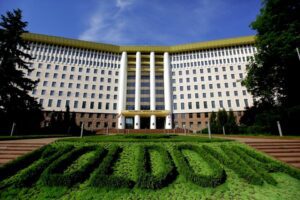
The Moldovan parliament has declared a 60-day state of emergency over the gas crisis.
The decision has been made at the government’s proposal, an Interfax correspondent said in a report. It was supported by 58 deputies from the ruling Party of Action and Solidarity (out of 101 parliament members).
The opposition denied support to the government proposal.
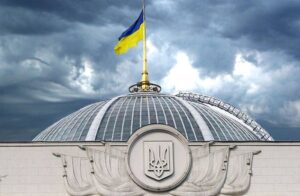
The Verkhovna Rada intends to simplify the procedure for granting citizenship to foreigners who protect the territorial integrity of Ukraine.
The adoption of the relevant bill No. 5630 at the first reading was supported by 302 MPs at an extraordinary plenary session on Tuesday.
The bill proposes to simplify the procedure for obtaining Ukrainian citizenship by citizens of a state recognized by the Verkhovna Rada of Ukraine as an aggressor or occupier who have been persecuted for political reasons, by foreigners and stateless persons who are doing military service under contract in the Armed Forces of Ukraine, and are also directly involved in measures to ensure national security and defense of Ukraine, the containment of the armed aggression of the Russian Federation in Donetsk and Luhansk regions.
In addition, the final and transitional provisions of the draft law provide for the possibility of submitting a declaration of renunciation of foreign citizenship by persons who received Ukrainian citizenship before the entry into force of this draft law.
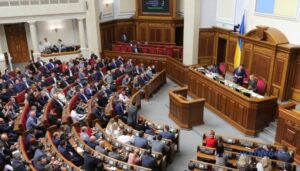
The Verkhovna Rada has adopted at the first reading the draft law on the state budget for 2022.
The corresponding decision at a plenary session on Tuesday was supported by 273 deputies with the required 226 votes.
As reported, on October 20, the Verkhovna Rada began to consider the draft state budget for 2022 and adopted it as a basis, after which the parliament began discussing separate amendments of deputies.
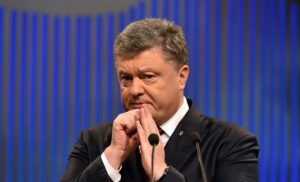
As many as 153 members of Ukraine’s Verkhovna Rada have endorsed the initiative of Vladlen Nekliudov of the parliamentary faction of the Servant of the People party requesting that Ukrainian President Volodymyr Zelensky impose sanctions on the enterprises of the Roshen confectionery corporation for “financing the budget of the aggressor state Russian Federation.”
The relevant decision was made at a parliamentary session on Friday.
Roshen, a leading confectionary producer in Ukraine, operates confectionery factories in Kyiv, Mariupol, Kremenchuk, Boryspil, Vinnytsia, Klaipeda (Lithuania), and Bonbonetti Choco in Hungary. The operations of the factory in Lipetsk, Russia, were halted on April 1, 2017.
According to the Unified State Register of Legal Entities and Individual Entrepreneurs, Roshen’s end beneficiary is Poroshenko’s son Oleksiy.
In December 2016, the Basmanny District Court of Moscow froze the assets of Roshen’s Lipetsk factory as part of a criminal case of embezzlement from the Russian budget.
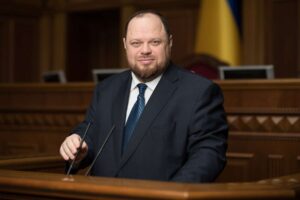
The Verkhovna Rada has supported the appointment of Ruslan Stefanchuk, who previously held the post of First Deputy Speaker, to the post of Chairman of the Parliament.
The corresponding decision was supported by 261 MPs at a plenary session on Thursday.
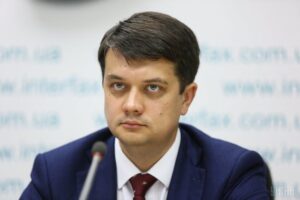
The Verkhovna Rada of Ukraine has dismissed Chairman of the Parliament Dmytro Razumkov.
The relevant decision was supported by 284 MPs at the Thursday plenary session.
In particular, some 215 votes in support of this decision were given by the Servant of the People faction, while 20 ones by the Batkivschyna faction, six votes by Holos, the For the Future and Dovira factions gave 19 and 18 votes, respectively, six votes from non-factional MPs […]. The European Solidarity and Opposition Platform – For Life factions did not give a single vote for Razumkov’s resignation.
However, the Opposition Platform – For Life and European Solidarity factions gave 23 and 27 votes, respectively, against such a decision. Seven MPs from the Servant of the People faction, eight MPs from the Holos faction, one MP from the Batkivschyna faction and eight MPs from non-factional ones voted against.
From May to November 2019, Razumkov headed the Servant of the People political party, the first number on the list of which was in the early parliamentary elections in 2019. He held the post of the Ukrainian parliament’s chairman from August 29, 2019.
As reported, on September 30, head of the Servant of the People faction David Arakhamia sent a letter on behalf of the deputy faction to recall Razumkov from the post of chairman.